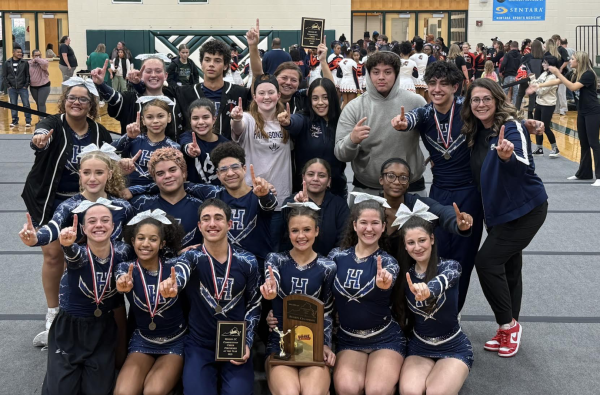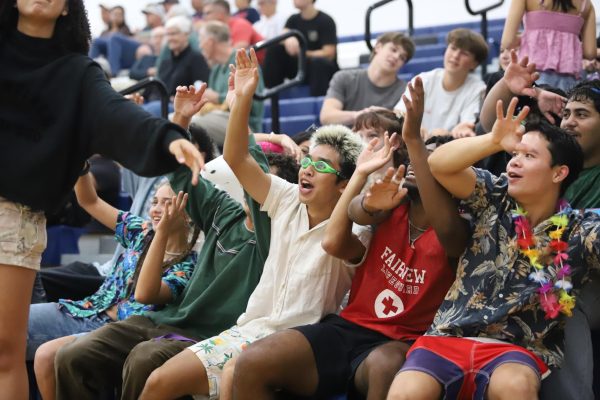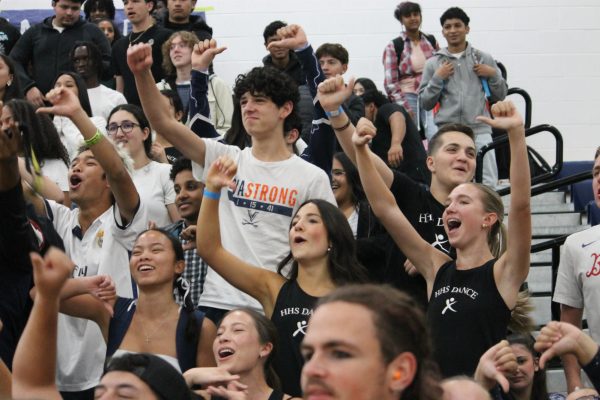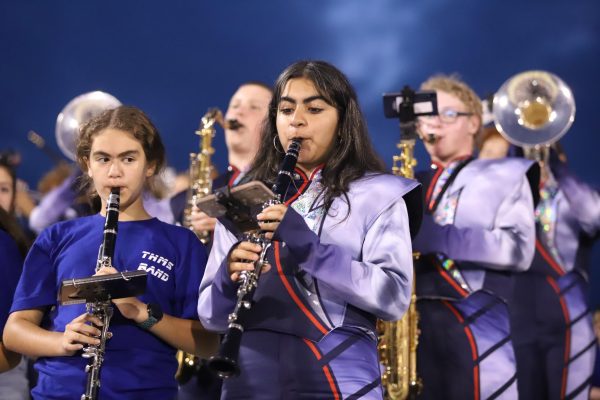Q and A with City Council candidate Paloma Saucedo
This Q and A was done as part of a series covering all the non-incumbent candidates for the city council election on Nov. 6. More Q and A’s will be posted throughout this week.
Q: Why are you running and why did you first decide to run?
A: I decided to run pretty soon after the decision about the second high school was made… I’m a mom of two high schoolers and a one-year-old. That was the push for doing something more immediate, but I wanted to run because I’ve been involved in the community for many years. I’m a community organizer. We want to create independent political power that is grassroots power, really power that comes from the community that lifts up those who are not usually heard.
Q: What are some parts of your platform that affect students or young people?
A: I think what would appeal to the youth is that we are a very inclusive, progressive campaign, and we want to make sure that we create spaces that are inclusive of gender, age, diversity, all the identities that people hold. We want to ensure that our education is creating critical thinkers and leaders.
Q: What is your plan for building the new high school while being fiscally responsible?
A: I believe that our children are an investment, so I think that our children deserve the best of the best when it comes to education. You guys spend many, many hours in school, so I want to make sure that you have a facility that is conducive to learning and to enjoying learning. When you talk about being financially responsible, I think the city can look into projects that are unnecessary. For example, we have a golf course that really doesn’t make any profit for the city, but we put a lot of money into that. We could maybe put that money into education. Another thing that is important for me, because I am so passionate about education and our children, is that we invest our resources in education and not in incarceration. I want to lower the incarceration rates to make sure that there are restorative justice measures that we can practice in our community and really stop mass incarceration. [I’d like to] really look at the deal with Middle River Jail and review that and see if it’s truly necessary that we are spending money on that deal.
Q: How has being a teacher in the past impacted your view of education?
A: I started teaching in Mexico when I was very young because I’m bilingual. I started teaching English as a foreign language. I’m really passionate about education. Like I said, I think education should allow children and students to explore and experiment and do hands-on learning. In Mexico I taught in the public and private sector, and here I work at Bluestone Elementary as a therapeutic day treatment specialist. So I definitely have experience in education and I know what I would like to see in the schools.
Q: What are some things HCPS does well and what should be changed?
A: I think the school system has wonderful staff that is dedicated and cares about their students, but I think we can always improve. Especially when it comes to having a more diverse staff. I believe we should have more people of color in front of classrooms and in other positions throughout the city, not only in the schools.
Q: How would you increase or decrease the HCPS budget?
A: I think it’s always a good idea to keep an eye out for possible grants and other possible funding that could come to the schools. I think it’s always important to revisit projects that may be unnecessary when it comes to the city… I grew up in a time when seven of us would share a computer and the computer took half the room. Now you guys have chromebooks and I think that’s amazing.
Q: What qualifies you to speak for young people?
A: I don’t think I speak for anybody. I think that I listen to young people, and I think my experiences as an educator and as a community organizer help me understand what the needs of the youth are. I was [at HHS] when there was a march against gun violence, and you guys were talking about the need to feel safe in your school, so I know that that’s important to you. Just being really involved in the community and also having two teenagers at home and a nineteen-year old step son and a twenty-three-year old step son I think has helped me be aware of what the needs of the young people are.
Q: What has your campaign done to appeal to young people?
A: We have tried to be inclusive of people. We have invited high school students to come to our events. We bought a table at the NAACP banquet that happened a couple weeks ago, and we invited one of the young people that has supported our campaign. We’re always looking for ways to include youth and for opportunities [for youth].
Q: One of your campaign points is workers’ rights. What would you do about students whose work in poultry plants hinders their ability to make it to school?
A: Part of my platform is to ensure that workers in the agriculture and poultry and hospitality sectors are treated with dignity and respect and have human conditions at work, regardless of their age or if they’re able-bodied or not able-bodied. I’m a firm believer in a union. Create the spaces for workers to organize and unionize. One of my dreams for Harrisonburg would be to have a workers’ center where workers can be informed about their rights and also get tools if they want to further their education.
Q: Is the school-to-prison pipeline an issue in Harrisonburg and what would you do to solve that?
A: Absolutely, I think the school-to-prison pipeline is an issue nationwide. It exists. I think implementing those restorative justice measures in the schools are definitely a great first step. Being able to move away from a culture of punishment and move to a culture of understanding and communication and restoration, I think that will be the way to go. [We need] a local justice reform looking at who’s getting incarcerated, why they’re getting incarcerated, who’s getting harsh sentences and who’s getting light sentences and ending cash bail because most of the people in jail are poor people. Most of the people in our jail here in Harrisonburg are poor white but also people of color are impacted in disparity.
Q: What would you do to protect LGBTQ students and students of color?
A: I identify as queer, and I didn’t actually come out until I was in my late twenties. I think creating spaces that are supportive of children not only at the high school level but at all levels, starting that education and that conversation when you are in elementary school, would be great. Providing condoms in the school would be another great thing.
Q: What lead you into politics?
A: I went to high school in Mexico, then I came to the U.S. But I couldn’t go to college because I didn’t have papers. Finally when I got a green card I signed up for Blue Ridge Community College. Then I transfered to Mary Baldwin, and I just graduated from college last year [with a degree in] social work. I think being engaged in community organizing is what lead me to this point of finally getting involved in electoral politics.
Q: What advice would you give to a student interested in politics or community organizing?
A: If you’re interested in that, look at the different people in your community and get engaged and volunteer. There’s also Youth Council. I think that’s a good place to get your feet wet when it comes to community organizing and social justice.
Your donation will support the student journalists of Harrisonburg High School. Your contribution will allow us to purchase equipment and cover our annual website hosting costs.
















